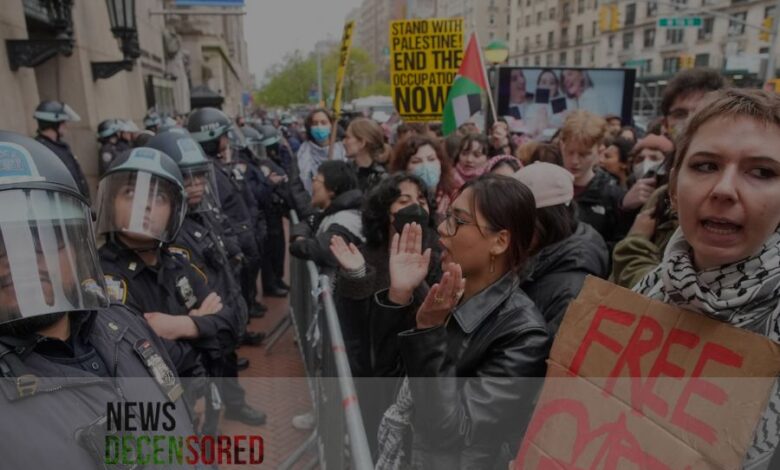Columbia Law Review’s website is shut down by its board following the publication of an article critical of Israel

London—“Al-Quds Al-Arabi”: The Intercept website published a report prepared by Natasha Leonard and Prem Thaker. In it, they said that the editors of the Columbia Law Review magazine (Columbia Law Review) refused to delete an article about Palestine, and that is why its board of directors blocked the entire website that published it.
In November, the Harvard Law Review decided to kill an article it had fully edited before publication, written by human rights lawyer Rabia Agbaria, and it was the first by a Palestinian to be published in the well-known and distinguished magazine.
Igbaria’s article seeks to establish a framework for the Nakba similar to that established for genocide and apartheid after the crimes committed by Nazi Germany and the white regime in South Africa.
As The Intercept reported at the time, Igbaria’s article, an attempt to establish the Palestinian Nakba as an official legal concept and expand its concept, was subjected to extraordinary scrutiny and, ultimately, censorship.
When the Harvard Press decided to remove his article and not publish it, editors from another elite Ivy League university asked him to write a new article. Igbaria did this and, as requested by the student editors, sent it to the Columbia Law Review. After receiving the article, they edited it and prepared it for publication.
Eight months after the Israeli attack on Gaza, Igbaria’s article remained frozen, this time by the Columbia Law Review’s board of directors. Igbariya published the article in the early hours of Monday morning on the Columbia Law Review website, and the council’s board of directors responded by blocking the entire website from the Internet.
According to Igbaria, he worked with the Columbia Law Review editors for over five months on the 100-page text. The website was quoted as saying, “Attempts to silence a legal researcher in the Nakba and subject him to an extraordinary process of discrimination do not only reflect the widespread exclusion of academic freedom related to Palestine,” but rather “are testimony to a deplorable culture of denial of the Nakba.
A large number of editors confirmed that the editorial comments were extensive and that the article’s text was widely distributed to a number of people, more than any article prepared for publication in the Columbia Law Review.
After some back and forth between the board and the editors, the magazine members in charge of Agbariya’s article feared that its draft had been leaked, so they took preventive action and published it on the magazine’s website on Monday, June 3. When the editors refused to delete the article, they blocked the entire website at the request of the magazine’s board of directors.
According to the students, Metzger and former Assistant U.S. Attorney Ginger Andres, a former alumnus, called Sunday and asked the 100 board members to review the article. Council members said they learned the article needed to follow the proper procedures. The student editors, who were quoted by the site, said that they were never asked to distribute an article to all members of the Board of Directors, and they need to know how the article’s text came to the board’s attention.
Responding to the leaks, the editors published the article at 2:30 a.m. on June 3. After publication, the magazine’s administration requested that the entire May issue be deleted, and when the students refused, the whole magazine’s website was blocked.
Rashid Khaledi, a member of Ighbari’s dissertation committee at Harvard University, said that the article’s author “provides an original and intelligent analysis of several Israeli legal features, which I believe should be welcomed by anyone open to the legal profession.”Igbaria says: “What we need is to recognise the Nakba through its independent framework, which intersects and overlaps with genocide and apartheid.”




